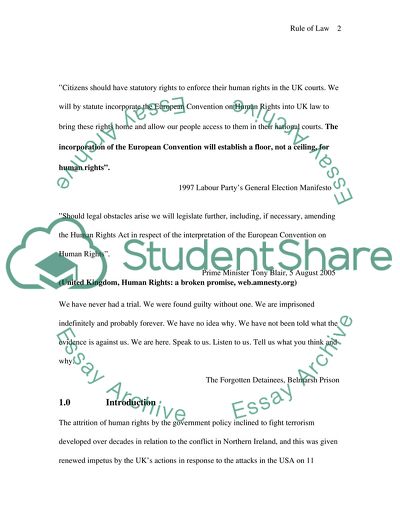Cite this document
(Interrogation Procedures and Anti-terrorism Laws of the United Kingdom Term Paper, n.d.)
Interrogation Procedures and Anti-terrorism Laws of the United Kingdom Term Paper. https://studentshare.org/law/1703871-in-light-of-the-concerns-placed-on-the-legality-of-uk-interrogation-procedures-in-relation-to-anti-terrorism-laws-where-do-you-think-this-leaves-the-rule-of-l
Interrogation Procedures and Anti-terrorism Laws of the United Kingdom Term Paper. https://studentshare.org/law/1703871-in-light-of-the-concerns-placed-on-the-legality-of-uk-interrogation-procedures-in-relation-to-anti-terrorism-laws-where-do-you-think-this-leaves-the-rule-of-l
(Interrogation Procedures and Anti-Terrorism Laws of the United Kingdom Term Paper)
Interrogation Procedures and Anti-Terrorism Laws of the United Kingdom Term Paper. https://studentshare.org/law/1703871-in-light-of-the-concerns-placed-on-the-legality-of-uk-interrogation-procedures-in-relation-to-anti-terrorism-laws-where-do-you-think-this-leaves-the-rule-of-l.
Interrogation Procedures and Anti-Terrorism Laws of the United Kingdom Term Paper. https://studentshare.org/law/1703871-in-light-of-the-concerns-placed-on-the-legality-of-uk-interrogation-procedures-in-relation-to-anti-terrorism-laws-where-do-you-think-this-leaves-the-rule-of-l.
“Interrogation Procedures and Anti-Terrorism Laws of the United Kingdom Term Paper”. https://studentshare.org/law/1703871-in-light-of-the-concerns-placed-on-the-legality-of-uk-interrogation-procedures-in-relation-to-anti-terrorism-laws-where-do-you-think-this-leaves-the-rule-of-l.


